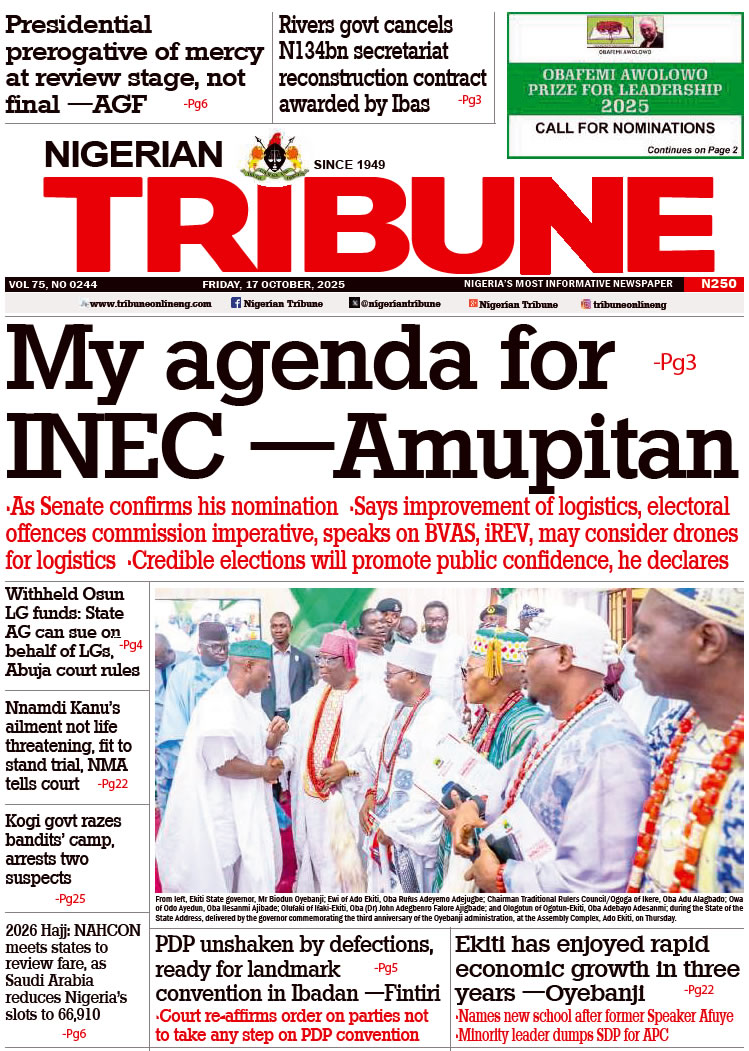As part of efforts to reduce vaccine hesitancy in Africa, the government, healthcare providers, community and faith-based leaders have been urged to design communication efforts that address fake news, rumours and disinformation which have been identified as the catalyst for vaccine hesitancy in the region.
This resolution was part of those arrived at by experts during the first two of a three-part webinar with the theme “COVID Vaccine Hesitancy in Africa: Reimagining the Role of Healthcare Workers and Community and Faith-Based Leaders.”
The webinar was co-organised by a global healthcare strategic consulting firm, Anadach Group LLC and a healthcare-focused human capacity development firm, RDAssociates Africa to assist the inoculation of the African population.
One of the speakers at the event and an assistant professor at the John Hopkins University, Dr Panagis Galiatsatos, noted that vaccine hesitancy can be addressed by co-opting religious and community leaders in the interpretation and dissemination of messages in a manner that has meaning to the community.
He added that misinformation can be best tackled when healthcare workers are present in their communities and do not wait till there’s an outbreak.
Another panellist who works at COVID-19 wards at private and government hospitals in Ethiopia said the ordinary were not the only ones affected by rumours and misinformation, adding that health workers also fell victim of unverified claims.
“It was difficult to convince my colleagues to reach the decision (to be vaccinated). These groups of the population are those expected to have a more positive attitude towards the COVID-19 vaccine but what we are seeing is the reverse. The hesitancy is increasing compared to the general population,” Dr Tesfaye said.
A Zimbabwean and current member of the Technical Evaluation Reference Group of the Governing Board of the Geneva-based Global Fund to fight AIDS, TB and Malaria, Dr Godfrey Sikipa, said communication about vaccination could be made more effective by involving community healthcare workers and religious leaders.
He added that they were better placed to monitor and investigate potential adverse effects of vaccination and prevent rumours from emerging.
Another panelist and faculty member of the College of William and Mary in the United States, Dr Iyabo Obasanjo said in the global black community, there is a distrust for western medicine and standards and this can be traced to discrimination. The epidemiologist noted that the distrust has resulted in the idea held by many that the west is not looking out for its best interests.
Speakers in the second session drawn from religious and community mobilisation groups agreed that there was a need for a targeted approach and coordinated information sharing system aimed at tackling vaccine hesitancy caused by misinformation.
To tackle vaccine hesitancy in her community, founder of the Nigerian Nurses Association of the United States and winner of the ‘2019 New York Yankees Nurse Hero’, Dr Grace Ogiehor-Enoma, told the panel that healthcare workers who saw people die in COVID-19 wards, survivors from the community and those who lost loved ones were invited to speak to the rest of the people on the effects of COVID-19.
Executive director of the Islamic Institution of Boston, Dr Tall Eid, said he personally sees the refusal to be vaccinated as a sin and a crime against humanity because innocent people are affected by the actions of the few, urging governments at all levels to do more to prevent the spread of disinformation about COVID-19 vaccine.
On his part, a Christian minister and public health professional, Dr Adeoye Oguntomilade, stressed the need for religious leaders to educate themselves on the concerns people give to avoid the COVID-19 vaccine and address them with technical support from private and public institutions to address medical distrust.
A community organiser and 2020 winner of the Africa Youth Award, Ms Amisa Rashid, said many Africans, particularly Kenyans, see COVID-19 as a western disease and do not believe they needed to take the vaccine.
“So to address this, we work with the youth because we know that it’s easy for the youth that we engage to change the attitude and perspective towards the vaccination,” Ms Rashid said.
YOU SHOULD NOT MISS THESE HEADLINES FROM NIGERIAN TRIBUNE
FALSE! Yoruba Not An Official Language In Brazil
Claim: A national newspaper and multiple online platforms claim Brazil has adopted Yoruba as its official language and that the language would be included in primary and secondary schools curriculum.
Verdict: The claim is false. The content of the article published by these online platforms is not new; it has been recirculated several times and has been debunked.Fake news, rumours fueling vaccine hesitancy in Africa ― Experts
Fake news, rumours fueling vaccine hesitancy in Africa ― Experts
WATCH TOP VIDEOS FROM NIGERIAN TRIBUNE TV
- Relationship Hangout: Public vs Private Proposals – Which Truly Wins in Love?
- “No” Is a Complete Sentence: Why You Should Stop Feeling Guilty
- Relationship Hangout: Friendship Talk 2025 – How to Be a Good Friend & Big Questions on Friendship
- Police Overpower Armed Robbers in Ibadan After Fierce Struggle






